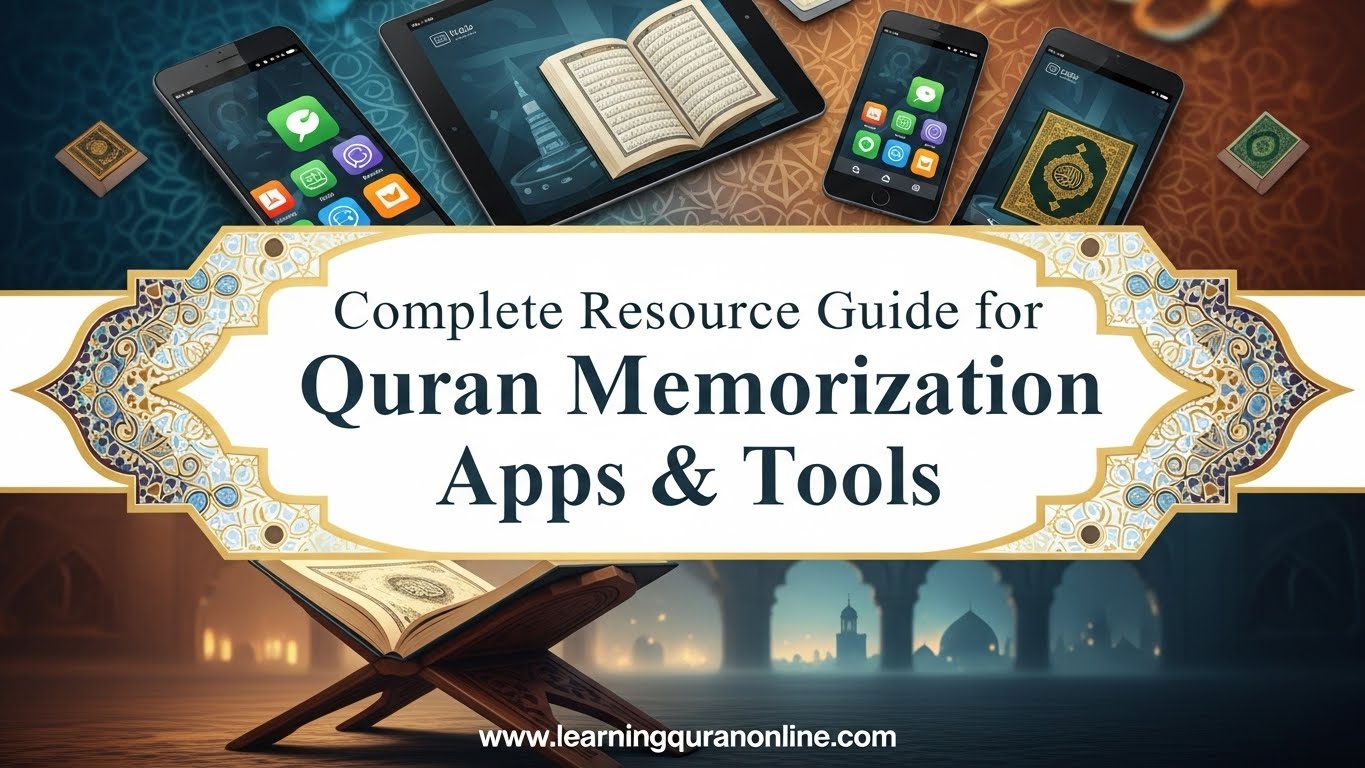Table of Contents
ToggleWhy Choose Online Quran Classes on Zoom?
Zoom has emerged as a leading platform for live Quran lessons because it supports real-time audio and video, screen sharing, whiteboard tools, and easy scheduling. Here are the primary benefits of learning the Quran online via Zoom:
- Live one-on-one Quran lessons: Personalized attention accelerates progress in recitation and tajweed.
- Group Quran classes: Social learning, peer motivation, and structured curriculum for children and adults.
- Flexibility and convenience: Learn from home or anywhere with a stable internet connection—ideal for busy families and working professionals.
- Qualified and certified Quran tutors: Access to experienced teachers who specialize in Tajweed, Hifz, Quranic Arabic, and Tafsir.
- Interactive learning tools: Use of the Zoom whiteboard, screen sharing of text/audio, and recorded sessions for revision.
Key Features of Successful Zoom Quran Classes
An effective virtual Quran program includes structured lessons, clear learning outcomes, and a supportive environment. Good online Quran academies focus on the following elements:
- Customized curriculum: Lessons tailored to age, level, and learning goals—beginner Quran reading to advanced tajweed and memorization.
- Progress tracking: Regular assessments and feedback to measure recitation improvement and memorization milestones.
- Flexible scheduling: Morning, evening, and weekend options to fit different time zones and lifestyles.
- Gender-sensitive tutors: Availability of female and male tutors for cultural comfort and preferences.
- Recorded lessons: Session recordings for revision and continued practice between live classes.
What You Can Learn in Zoom Quran Sessions
Zoom Quran classes cover a wide range of Islamic education topics. Students can choose courses based on their needs:
- Quran Recitation (Tilawah): Improve pronunciation, fluency, and rhythm of recitation.
- Tajweed: Learn the rules of proper pronunciation, articulation points (Makharij), and phonetics.
- Hifz (Memorization): Structured memorization plans with regular revision cycles and teacher supervision.
- Quranic Arabic: Understand grammar, vocabulary, and meanings to deepen comprehension.
- Tafsir and Islamic Studies: Study the exegesis (Tafsir) and contextual understanding of verses.
- Beginner Reading Skills: Learn to read Arabic script, Harakat (vowel marks), and common rules.
How Zoom Enhances the Learning Experience
Zoom’s features make it uniquely suited for online Islamic education. Teachers can demonstrate recitation, highlight text, and provide instant feedback using technology that replicates in-person lessons:
- Pause and replay: Students can request slowdown or repeat for tricky verses, making tajweed practice more precise.
- Screen sharing: Tutors can display the mushaf, transliteration, and supplementary materials.
- Whiteboard: Useful for illustrating tajweed rules, Arabic grammar, and pronunciation points.
- Breakout rooms: In group classes, breakout rooms allow for small-group practice or tests under supervision.
- Session recording: Enables revision and helps learners consolidate what they practiced in the live lesson.
Choosing the Right Online Quran Tutor
Selecting a qualified Quran teacher is crucial. Consider the following when choosing an online Quran tutor or academy:
- Credentials and experience: Look for certified tutors with established experience in Tajweed, Hifz, or Islamic studies.
- Teaching methodology: Does the tutor use interactive tools, structured syllabi, and measurable outcomes?
- Trial lessons: Many Quran academies offer a trial class to assess teaching style and compatibility.
- Student reviews and success stories: Testimonials, progress reports, and references from other students.
- Language compatibility: Tutors who explain concepts in the student’s native language can greatly improve understanding.
- Availability: Ensure the tutor accommodates your preferred schedule and time zone.
Tips to Succeed in Online Quran Classes
Successful online learning requires discipline and good habits. Below are practical tips for students and parents to maximize progress:
- Set a consistent daily or weekly schedule and treat lessons as appointments.
- Create a quiet, distraction-free study space with reliable internet, proper lighting, and a comfortable camera setup.
- Keep your Quran, notebook, and any study materials ready before each Zoom session.
- Actively participate in the class—ask questions, repeat after the teacher, and practice aloud.
- Use recorded sessions to revise difficult portions and consolidate memorization.
- Set short-term and long-term goals (e.g., mastering a Surah, improving tajweed marks, completing a Hifz target).
Is Online Quran Learning via Zoom Right for Children?
Yes—Zoom is particularly effective for kids when lessons are interactive and paced appropriately. Child-friendly Quran teachers use shorter sessions, visual aids, and positive reinforcement. Parents should:
- Join the first few sessions to understand the teaching approach.
- Ensure children have healthy screen time limits and breaks between sessions.
- Encourage daily short practice sessions to reinforce what is taught online.
Common Concerns and How to Address Them
Some learners worry that online classes lack the personal touch of in-person lessons. However, when well-structured, Zoom Quran lessons can be equally effective:
- Concern: “Will my tajweed improve online?”
Solution: With live feedback and recorded practice, students often make faster progress because they can replay corrections and focus on specific articulation points. - Concern: “What about memorization accountability?”
Solution: Regular assessments, scheduled revisions, and parental involvement create strong accountability for Hifz learners. - Concern: “Is it safe for children?”
Solution: Reliable academies implement safety measures: verified tutors, monitored sessions, and privacy policies.
How to Get Started
Starting online Quran classes via Zoom is straightforward:
- Choose a reputable academy or tutor and request a trial class.
- Discuss goals—recitation, tajweed, Hifz, Arabic, or Tafsir—and set a suitable schedule.
- Install Zoom and test your microphone, webcam, and internet connection.
- Gather materials: a physical or digital mushaf, notebook, and headphones if needed.
- Attend the lesson on time, actively participate, and practice between classes.
Why Learning Quran Online is Here to Stay
Virtual Quran learning is not just a temporary solution. It opens doors for students across the world to access skilled tutors, flexible scheduling, and personalized curricula. Zoom has been instrumental in bridging distances and making Islamic education inclusive and accessible. Institutions and families are increasingly embracing online Quran education as a core part of spiritual and academic growth.
Final Thoughts
Online Quran learning via Zoom offers a comprehensive, flexible, and effective way to learn the Quran, improve recitation, and pursue memorization. With the right tutor, structured curriculum, and consistent practice, students of all ages can achieve remarkable progress. If you’re looking to begin or enhance your Quranic journey, consider a trial Zoom class with a certified tutor to experience the benefits firsthand. Our Online Quran Learning Academy, Learning Quran Online, provides tailored lessons to meet individual needs and learning goals.
Ready to start? Schedule a trial session, prepare your materials, and take the first step toward mastering the Quran online.
















